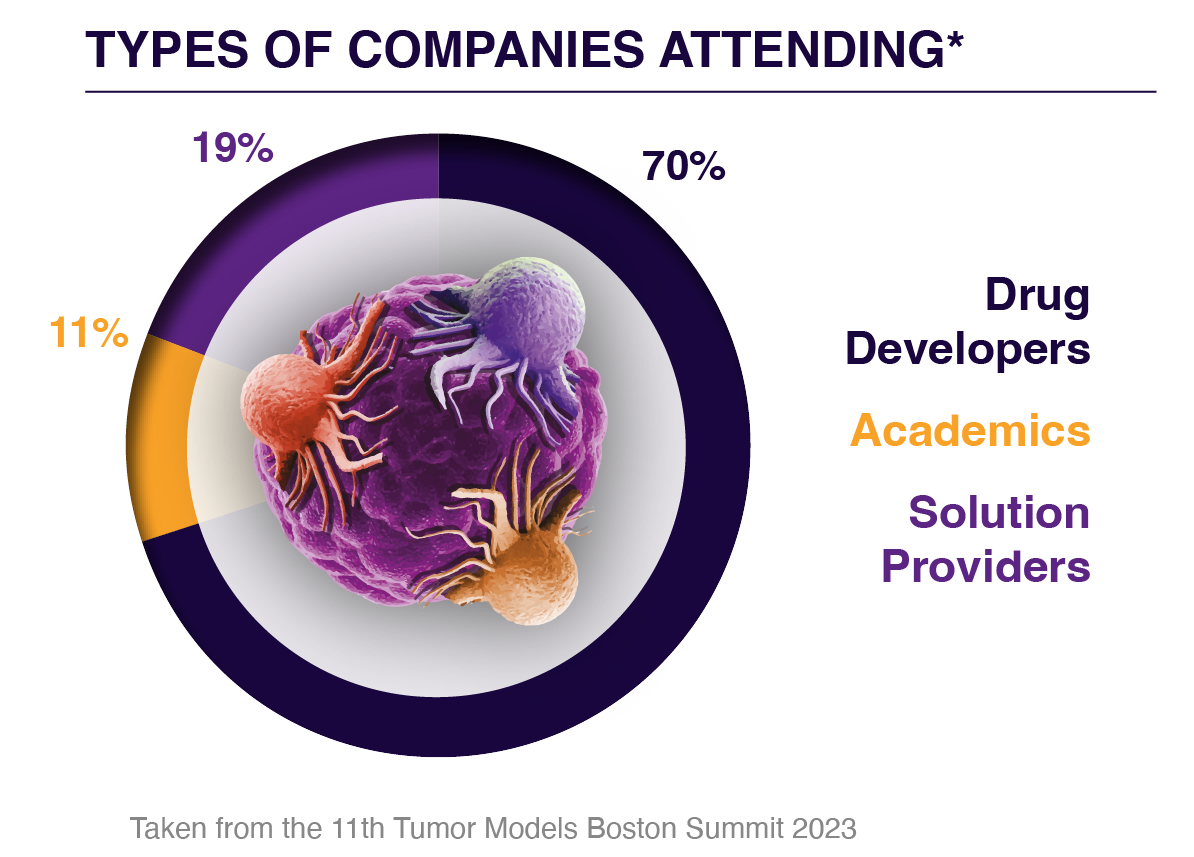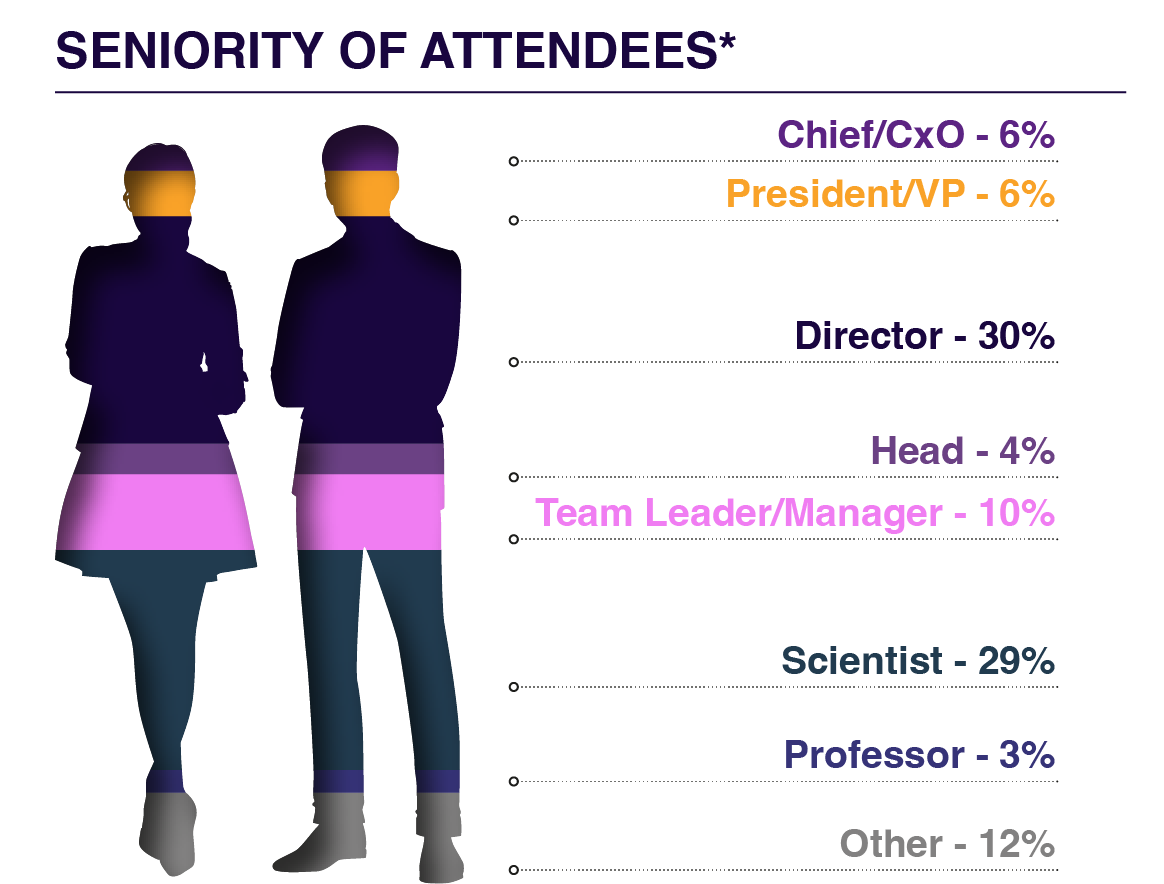Partnership Opportunities
Can we help you further elevate your platform and capabilities
in this crowded market in 2024?
2024 marks a turning point for oncology models. The newly signed FDA Modernization Act has validated industry investment in complex in vitro models, driving the industry to shift towards more patient derived models to better recapitulate the tumor microenvironment. Because of this, preclinical CROs are flooding the market with a wider selection of better models to achieve translational success.
Showcasing your services at the 12th Tumor Models Boston Summit will ensure your that your services remain front of mind in this highly competitive space. This is your definitive and must-attend meeting to be at the forefront of the cutting-edge technology and solidify yourself as the thought-leader and partner of choice to 200+ of our carefully selected, elite, senior speaker faculty, and audience.
Through our research, the industry is keen to interact with the following services:
Preclinical CROs: Pharma and biotech researchers utilize preclinical CRO services to enhance tumor models, access diverse platforms and employ advanced technologies for precise therapeutic response predictions. Outsourcing ensures standardized protocols, regulatory compliance, and cost-efficient execution, enabling de-risking of novel targets, therapeutic outcome predictions, and biomarker discovery, essential for advancing potential cancer therapies to clinical trials
Biomarker Assay: Companies rely on biomarker assay services to identify and validate key biomarkers essential for understanding disease mechanisms, predicting treatment responses, and monitoring patient outcomes. Outsourcing to specialized providers grants access to cutting-edge technologies, assay development expertise, and regulatory compliance, streamlining biomarker discovery and validation processes crucial for advancing personalized treatment
AI Tools & Software: Pharma and Biotech utilizing tumor models rely on AI tools and software services to manage complex data, enabling efficient analysis, pattern recognition, and predictive modeling to identify molecular signatures and forecast treatment responses. These AI-driven approaches accelerate drug discovery, facilitate personalized medicine, and bridge preclinical findings with clinical applications, ultimately enhancing patient outcomes in cancer treatment
Imaging: Pharma and biotech firms use imaging services to guide drug development and assess treatment efficacy across therapeutic areas, outsourcing to specialized providers for advanced modalities and regulatory compliance. Leveraging these services accelerates drug development, enhances study accuracy, and boosts the likelihood of regulatory approval for new therapies.





Advancing their pipeline towards the clinic utilizing translational modelling services
Analyzing deeper levels of disease complexity within the models by implementing highly sensitive imaging platforms and HTS technologies
Empowering clinical translation to patients by validating biomarker targets by employing biomarker assays
Implementing bioinformatics, spatial biology & NGS tools to advance target optimization through to precision medicine decisions
Facilitating toxicity studies for combination partner selection through PKPD analysis



